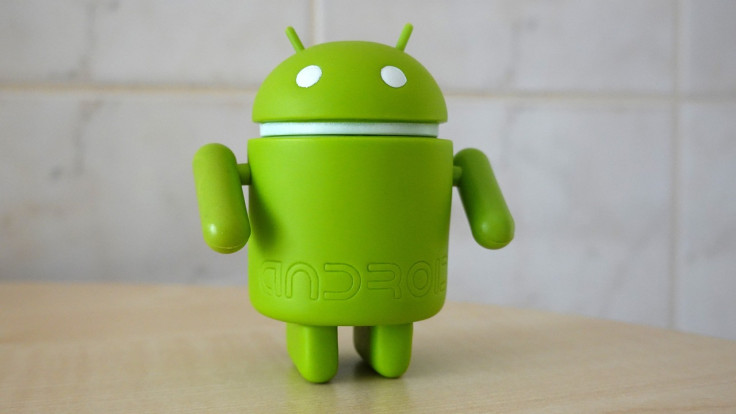Android 14 to get SMS via satellite feature like iPhone 14
The SMS via satellite feature will arrive on Android 14, but it requires "appropriate hardware" to work.

Google is reportedly gearing up to bring SMS via satellite feature to devices running on the Android 14 OS. To recap, Apple added the groundbreaking Emergency SOS via Satellite Connectivity feature to its iPhone 14 series last year.
The feature enables users to send emergency message alerts from remote places that do not have cellular or WiFi coverage. Ideally, the feature does not require any special hardware.
Following in the footsteps of the Cupertino-based tech giant, Huawei brought the Satellite Connectivity feature to its Mate 50 series and P60 series smartphones. Now, the SMS via satellite feature is expected to arrive on Android phones.
SMS via Satellite feature on Android 14
Twitter user Pixel #TeamPixel (@GooglePixelFC) recently predicted that the SMS satellite feature is coming to Android. However, the tipster claims the feature will require special hardware. So, offering this feature will be up to the phone manufacturer.
Satellite SMS, Android 14
— Pixel #TeamPixel (@GooglePixelFC) July 20, 2023
SMS Satellite will be added to Android, and requires appropriate hardware, it's up to the manufacturer then
— Pixel #TeamPixel (@GooglePixelFC) July 20, 2023
Pixel and Galaxy will be among the first to have it
Moreover, the TeamPixel FC Twitter account claims Google Pixel and Samsung Galaxy will be among the first smartphones to support the SMS via satellite feature. Last year, a report indicated the Galaxy S23 series will get the iPhone 14-like satellite connectivity feature.
However, the speculation did not turn out to be true. Nevertheless, the Korean tech giant might bring the feature to its upcoming Galaxy S24 series phones next year. Likewise, Google might add the SMS via Satellite feature to its highly anticipated Pixel 8 series phones.
Notably, it will be a baked-in feature in Android 14 for all devices that support the tech. It is no secret that Apple's Emergency SOS via Satellite is a life-saving feature in several situations. Aside from this, Android 14 has introduced many awe-inspiring features including notification flashes, and faster phone unlocking using a PIN. The company is also reportedly prepping to add new stylus features.
Android 14's stylus features
Android 14 will add a few useful features for a connected stylus. While nothing is set in stone yet, a live demo of how Bluetooth styli works with note-taking apps on an Android 14 tablet has surfaced online. Android 14 has already added some new options for styli connected over Bluetooth.
Here's a first look at Android 14's new notetaking feature for styluses👀 🖊️📓
— Mishaal Rahman (@MishaalRahman) July 21, 2023
In this video, I first launch the default notes app from a lock screen shortcut, then I unlock the device, press the stylus tail button to launch the notes app in a bubble, and insert a screenshot. pic.twitter.com/SIMmcl6Ouh
You can go to settings to select your default notes app. Here, you can also choose to bypass all inputs from the stylus's physical button in a bid to avoid accidental clicks. Android expert Mishaal Rahman managed to make some of these features work and give us a glimpse into how you can use a stylus on Android 14.
Android 14 adds a new role called ROLE_NOTES. This role can only be granted to apps that target SDK 34 and which handle the android.intent.action.CREATE_NOTE intent with the category set to DEFAULT and the showWhenLocked and turnScreenOn flags.
— Mishaal Rahman (@MishaalRahman) July 21, 2023
The demo video suggests you can use the lock screen shortcut to launch the default note-taking app. You can open an empty note by tapping on it instantly. Furthermore, you can use the stylus's button to launch the app on top of other apps. After cropping and adding notes to the image, you can add a screenshot of whatever is behind the note.
According to Rahman, these note features will be turned off by default on Android 14. However, you can force-enable them from developer options. The folks at Android Police point out that note apps that target SDK 34 will be able to support these Android 14 features.
What else to expect?
Interestingly, the list of supported apps does not include Google's own free note-taking app, Google Keep. However, this is likely to change soon. Last month, the Google Pixel Tablet arrived without a Google-made stylus, but it allowed users to magnetically attach third-party styli on its back.
A separate report by Android Authority suggests the Pixel Tablet could get a stylus and keyboard accessory. Currently, the search giant's maiden tablet comes with a dock. Android 14 is expected to add a lot of improvements including a superior stylus and keyboard experience to the Pixel Tablet.
So far, Google has rolled out three beta versions of Android 14. The stable version of the OS could come out in August 2023. In the meantime, brands like Vivo, Oppo, OnePlus, and Nothing have released Android 14 Developer Beta to some of their devices.
© Copyright IBTimes 2025. All rights reserved.






















